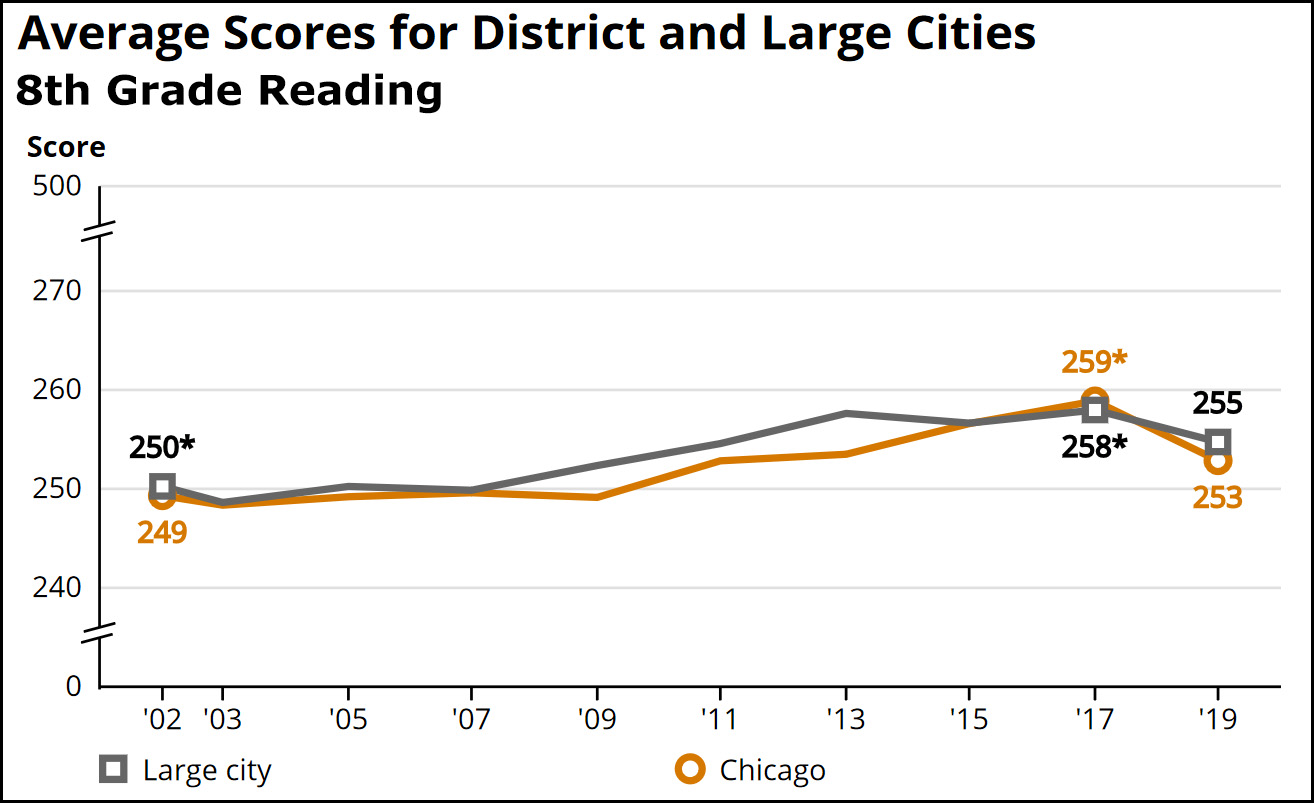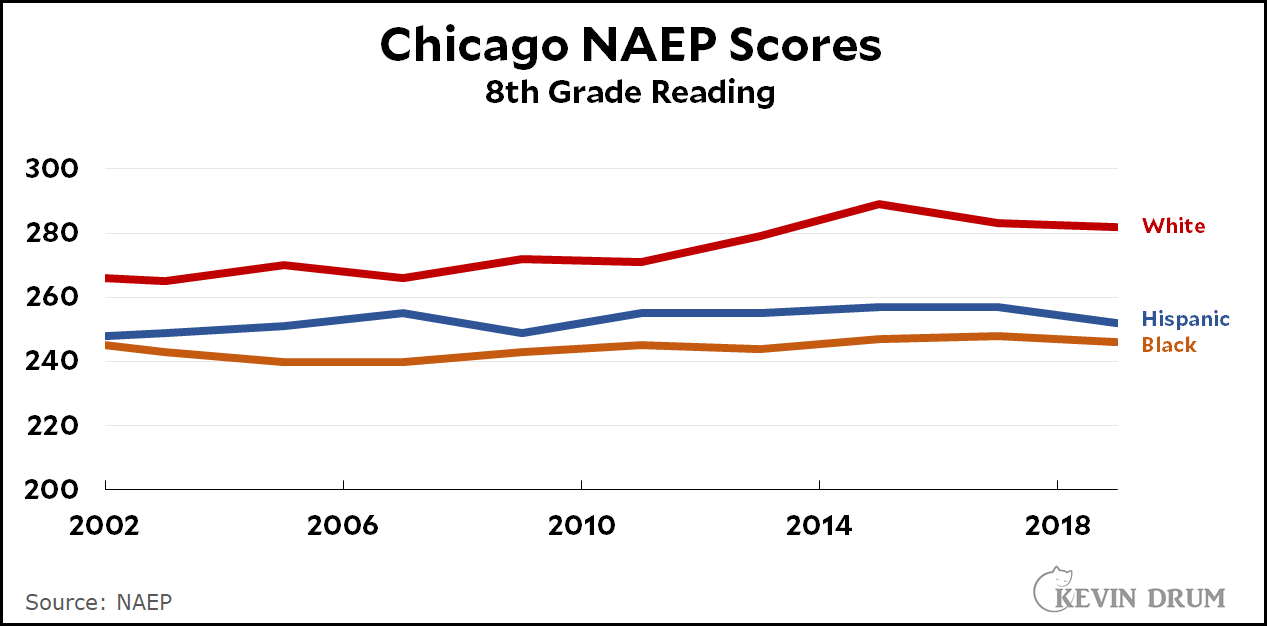Bob Somerby is discussing Karin Chenoweth's new book, Districts That Succeed, which suggests, among other things, that Chicago has made substantial progress in its schools over the past couple of decades. As usual, that got me curious: has Chicago made a lot of progress? The quickest reference point is their performance on the NAEP test, so let's take a look:


The top chart is for reading at the 8th grade level, and it shows that Chicago performs at about the same level as big cities nationwide. There's nothing especially wrong with that, but it hasn't changed a bit since 2002.
The bottom chart breaks out 8th grade reading scores by race. Hispanic scores have gone up slightly since 2002 and Black scores have made no progress at all. The only change is that Chicago's small cadre of white 8th graders made an 18-point gain between 2011 and 2015 and have mostly maintained it since then.
It's unusual to see such a big gain, roughly equivalent to two grade levels, over the course of only four years. It gets my spidey sense tingling. Nonetheless, even if it's legit it's the only progress Chicago has made. It's been average among big cities for two decades, and neither Hispanic nor Black children, which make up virtually the entire district, have improved more than a tiny bit. If this is success, we sure have lowered the bar lately.
POSTSCRIPT: Everyone has made progress in math over the past couple of decades, and so has Chicago. It has caught up to the big-city average, and all racial groups have improved. However, white students have improved quite a bit more than either Black or Hispanic students.
I generally focus on reading because reading scores are more indicative of success in the real world. I also generally try to focus on 12th graders, but NAEP's TUDA program for large cities doesn't include district level data above 8th grade.

I don't quite get your last sentence. All of the schools in a TUDA are in the same district (i.e., the "D" in "TUDA").
The real winner of the Chicago Public Schools performance improvement? Donald Trump.
Kevin, why do you bother to read what Somerby has to say ?
He's spent the last 4 years attacking liberals and defending Trump and other Trumpbots. He is spectacularly dishonest since he only cares about bashing liberals while pretending to be one. Any comment he makes should be assumed a priori to be a lie.
Somerby has gone off the rails with anti-anti-racism, but at least some of what he says about education is worth reading (critically). At least when he criticizes the interpretation of test results. As Kevin sometimes points out, those interpretations are often unsound.
To quantify that "small cadre" 10% of Chicago Public School enrollment is white, 39%, 46% Hispanic.
S. b. "39% black"
The analysis in the book under discussion was for the 4th grade cohort in 2011 going from 48% at grade level to 67% at grade level in 2015 when they're in 8th grade. Chicago was behind their peers, and did catch up, which is hard to do.
But you're right, Kevin, a lot more work needs to be done. The pandemic year will probably be a lost year. This next year will be challenging too. If the essential workers get and keep better pay and benefits, and that helps stabilize traditionally poorer communities, that will help close the achievement gaps.
Pingback: How clueless principals and superintendents ruin great schools | Later On
Louisville police hid 738,000 records showing sexual abuse by officers,
https://news.yahoo.com/louisville-police-hid-738-000-161627046.html
Who do social conservatives become cops?
So they can get away with it.
I would say the stats just show gentrification by white households -- https://www.chicagomag.com/news/april-2019/where-is-gentrification-happening-follow-the-mayors/
Agree. The test scores tell us less about the impact teachers are having than they do about what sort of students are in the schools.
Those test scores are really blunt instruments. I'm not saying they're worthless, just overvalued.
After fifteen years teaching in Los Angeles schools, I've come to the conclusion that there is only one way to get major improvement in reading skills: students need to do more reading - a lot more reading - outside of school. It has to be something students do regularly as part of their lives.
The percentage of my high school students who reported that they never read anything other than books or readings assigned in school is always over 90%. Think about what that says about the students' devotion to improvement and what attitudes they bring to the assignments in school.
It does irk me a little that Asians are always left out of these graphs, given that they always blow white kids out of the water. Makes it seem like we're cherry picking the data to reinforce a particular narrative.